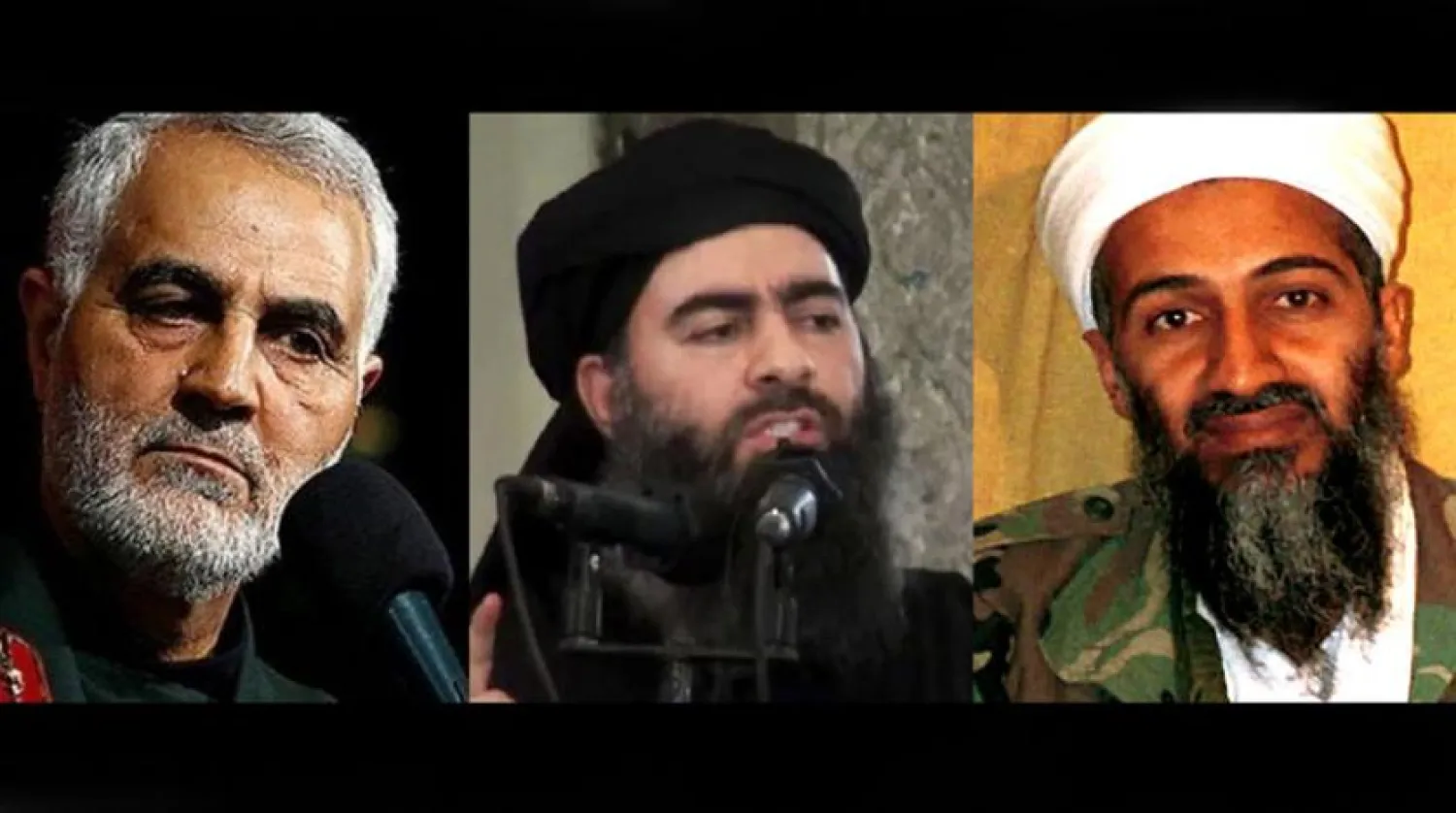The US first killed Qaeda's leader Osama bin Laden and years later it killed ISIS leader Abu Bakr al-Baghdadi, and now they killed the commander of the "Quds Force" in the "Revolutionary Guard" Qassem Soleimani. How do these killings differ, and could their repercussions be different?
Osama bin Laden
The leader of Qaeda was killed in his hideout in Abbottabad in Pakistan on the 11th of May in 2011 by a US commandos force. He was hiding from the Americans who had been trying to liquidate him since Bill Clinton was in office because of his establishment of a state within a state in Afghanistan through the Taliban. As the years went on, his organization attacked more and more US targets between 1998 and 2001, the urgency of finding him increased. After 9/11, he became their number one target, a target that took them ten years to find. They expected revenge at the hands of his organization, but Qaeda was not able to manage it. Bin Laden's killing came after his organization was already been disintegrating. Likewise, the killing of bin Laden came in the shadow of the relentless war dominated by drones that killed leader after leader. Also, the departure of the Qaeda leader came at a time when branches of the organization were collapsing the security services around the world, starting in the Arabian Peninsula and ending with the Maghreb".
Abu Bakr Al-Baghdadi
Al-Baghdadi was killed by a US commando raid on his hideout in Barisha village in Idlib countryside, close to the Turkish border, on October 26, 2019. He was hiding thereafter the "state" he had set up collapsed in 2014 after ISIS invaded Mosul and announced the establishment of a so-called "caliphate" that included large parts of the lands of Syria and Iraq, and had a surface area greater than that of Britain. Al-Baghdadi, like bin Laden, was hunted by global intelligence agencies, but he surrounded himself with a tight security team that prevented any substantial information from being leaked. ISIS had already become a mirage when Baghdadi was killed. A few months before, his organization had lost its territory. Like bin Laden at the time of the killing, Baghdadi's organization had collapsed before he was killed. Thousands of its members are detained by American allies in Syria and Iraq, and branches of the organization around the world were suffering, ISIS's stronghold in Syria and Iraq, passing through Yemen to Sinai Libya and Khorasan. Thus, when Baghdadi died, his supporters were not yet able to avenge his death.
Friday morning, January 2, 2009, Iraqi local time, a US "drone" carried out a missile strike that destroyed a convoy in which Qasim Soleimani was traveling along with Iraqi and Iranian leaders near Baghdad International Airport.
Qassem Soleimani
The decision to kill Soleimani is the second of its kind which Trump has issued, coming only two months and a half after the first, Baghdadi's liquidation. In the case of Baghdadi, it was an easy decision, as he is universally seen as a criminal. Things are different in the case of Soleimani, the commander of the "Quds Force" responsible for countless attacks against US soldiers in Iraq by Shiite militias, which Soleimani himself had trained and supervised. The US had targeted Soleimani in Iraq back in January 2007, but the attempted liquidation failed. Since then, the commander of the "Quds Force" seemed free to roam around as pleased, constantly moving between Iraq, Syria, and Lebanon. This was the case until Trump decided to liquidate him two days ago.
According to the New York Times, the killing of Soleimani was justified in the name of "self-defense" and the constitutional powers of the US President as commander-in-chief of the armed forces.
However, targeting a major official of a state is against a law that was issued in the US in the seventies and prevents "assassinations". However, this ban has been overridden in counterterrorism operations. It is in this context that Trump decided, last year, to classify the Iranian "Revolutionary Guard" as a foreign terrorist organization, the first time that the US classifies a government apparatus of another country as a terrorist organization.
The Liquidations… and Revenge
Bin Laden’s successor, Ayman al-Zawahiri, and al-Baghdadi’s successor, Abu Ibrahim al-Hashemi al-Qurashi and all al-Qaeda and ISIS branches, have so far been unable to fulfill the promise of “revenge,” but maybe Soleimani’s killing will be different. The “Soleimani State,” Iran, is a strong regional state, not ISIS, a state that exists in name only as “the state within the state” like the Taliban in Afghanistan. Likewise, the branches established by Soleimani and the Revolutionary Guards around the world, from Lebanon to Syria, Iraq, and Yemen, are not in a similarly weak position to those of ISIS and Qaeda branches.
All of them had promised "revenge," but will Soleimani's successor, Ismail Ghaani, succeed where his successors, bin Laden and Al-Baghdadi could not?














